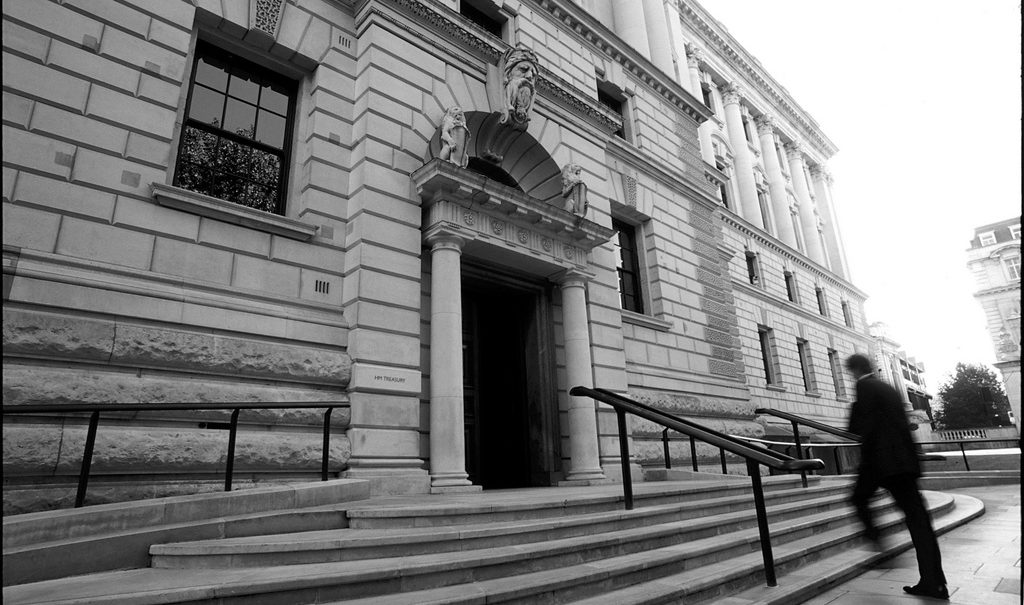Our corporation tax system is broken. Here’s how to fix it

Image: HM Treasury, CC BY-NC-ND 2.0
“We are all in this together” was the familiar refrain used by former Chancellor George Osborne. If we want to pay down the public debt, we must all bear some of the burden for tax rises and spending cuts. After it was announced this week that the target for reducing the deficit had been reached, Mr Osborne announced triumphantly that “we got there in the end”.
It is, however, not at all clear who Osborne is referring to when he says “we”.
The enlarged deficit in 2009-10 was created by the slump in output that followed the global financial crisis, and the spending required to get us out of it. It was the decision to bail out the banks which added £1.5 trillion to the national debt — not overgenerous public spending by the previous Labour Government.
And yet, those people who rely most heavily on our public services have been the ones to bear most of the cost. Our schools have seen almost £3 billion worth of cuts since 2015. Local councils will see their funding fall by 77 per cent by 2020 versus 2015. The NHS funding gap stands to reach a staggering £30 billion by 2020.
Meanwhile, successive Conservative governments have reduced the rate of corporation tax from 30% in 2005/06 to just 19% today. This is the lowest rate in the G7, and one of the lowest rates among the 35 countries of the OECD. Astonishingly, a further reduction to 17% is still planned before the end of this Parliament.
These changes have seen revenues from corporation tax fall from 3.5% GDP in 2005/06, to just 2.6% today. At the same time, it has become increasingly easy for multinational companies to shift their profits to low-tax jurisdictions in order to avoid paying tax in the UK altogether.
Today, nearly half of all children in London, Birmingham, and Manchester live in poverty, whilst UK-based corporations enjoy some of the lowest tax rates in the developed world. So much for “we’re all in it together”.
It is in this context that the IPPR has released a new report calling for a fundamental rethink of the system of corporate taxation in the UK.
First, we are proposing an increase in corporation tax from 19% to 24%. We argue that the revenues from this should be used to reduce taxes on workers by reducing employers’ national insurance contributions from 13.8% to 11.8%.
Taxes on profits are more likely to be borne by the people who own a company, whilst taxes on payrolls are more likely to be borne by workers themselves. So reductions in corporation tax have benefited shareholders at the expense of workers, who have yet to see their wages recover to pre-crisis levels. This imbalance has also had important distributive effects between companies, raising the tax burden of less profitable, higher-employment companies, and reducing that of more profitable ones.
Second, we propose the introduction of a new tax designed to prevent multinational tax avoidance. Our ‘Alternative Minimum Corporation Tax’ (AMCT) would link a company’s tax liability to its sales or turnover in the UK, to ensure that firms were not able to avoid taxes by shifting their profits to low-tax jurisdictions.
While we do not currently have any reliable data on the extent of multinational profit shifting, the exchequer is estimated to lose somewhere between £3 billion and £12 billion each year as a result of these practices. Our AMCT would capture a significant portion of these lost revenues, which would go some way to closing the gap in the NHS budget.
After eight years of austerity borne primarily by the most vulnerable in our society, it’s time that all businesses started paying their fair share.






